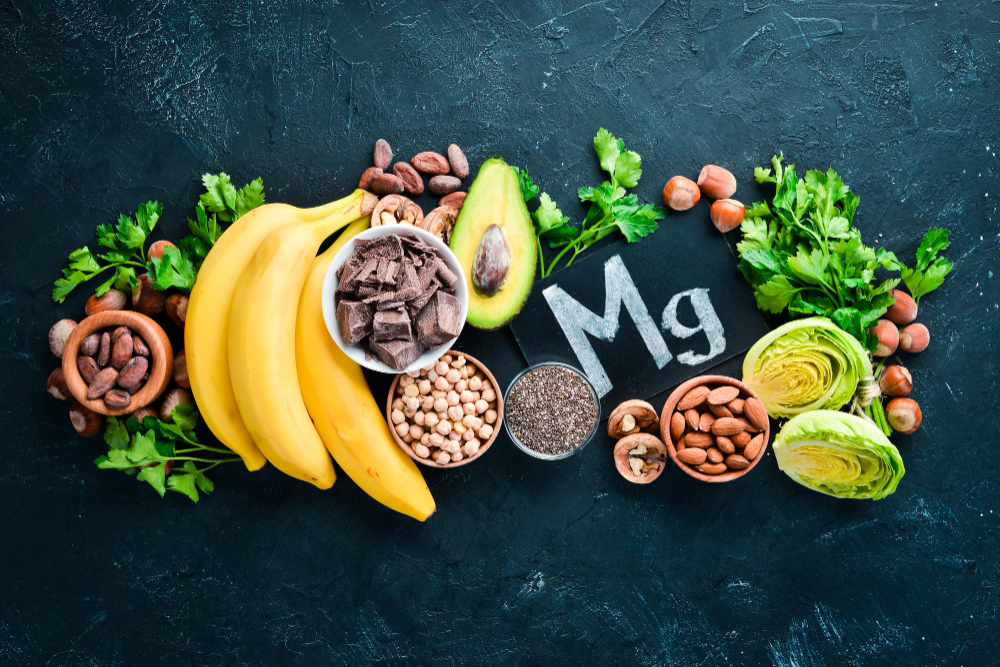What Supplements Help with Cortisol? Understanding the Best Options

Cortisol, often referred to as the “stress hormone,” plays a crucial role in the body’s fight or flight response. It helps regulate blood sugar, control inflammation, and manage metabolism. However, when cortisol levels remain elevated due to chronic stress, it can lead to a variety of health problems, including weight gain, insomnia, weakened immunity, and increased anxiety.
Managing cortisol levels is important for overall health and well-being. While reducing stress through lifestyle changes is essential, certain supplements can help lower cortisol levels naturally. In this article, we’ll explore some of the most effective supplements that support cortisol management and help reduce stress.
- Bioma Digestive Enzymes: The Key to Cortisol Balance Through Better Digestion
When it comes to managing cortisol and supporting stress reduction, Bioma Digestive Enzymes play a vital role in regulating digestion, which directly impacts cortisol levels. A well-functioning digestive system is essential for managing stress—when digestion is compromised, it leads to inflammation and increased stress, both of which can elevate cortisol.
Bioma Digestive Enzymes help improve the digestion of proteins, fats, and carbohydrates, ensuring your body absorbs nutrients more efficiently. This not only reduces digestive discomfort, such as bloating and gas, but also helps your body manage stress more effectively, leading to a healthier overall stress response and improved well-being.

- Ashwagandha: The Adaptogen for Stress Relief
Ashwagandha is one of the most popular adaptogenic herbs used to reduce stress and balance cortisol levels. Adaptogens are substances that help the body cope with stress by regulating the stress response system. Ashwagandha has been shown to lower cortisol levels significantly, making it a powerful supplement for stress management.
How Ashwagandha Lowers Cortisol
Research has shown that ashwagandha can reduce cortisol levels by up to 30%, depending on the dosage and individual stress response. It does so by modulating the adrenal glands and the hypothalamic-pituitary-adrenal (HPA) axis, which controls the body’s production of cortisol.

- Rhodiola Rosea: Boosting Resilience to Stress
Another adaptogen, Rhodiola Rosea, is well-known for its ability to reduce stress and fatigue while enhancing mental performance. Like Ashwagandha, Rhodiola helps balance cortisol by improving the body’s ability to respond to stress. It has been used for centuries in traditional medicine for its ability to combat exhaustion and anxiety.
How Rhodiola Rosea Helps Lower Cortisol
Rhodiola has been shown to normalize cortisol levels in response to both acute and chronic stress. Studies suggest that Rhodiola can help manage cortisol fluctuations, particularly when dealing with stressful environments or high workload. It is often recommended for those who are experiencing burnout or chronic stress.
- Phosphatidylserine: A Key to Restoring Balance
Phosphatidylserine is a naturally occurring phospholipid that is important for maintaining healthy brain function. It has been studied for its ability to reduce cortisol levels, especially in response to physical stress.
How Phosphatidylserine Works to Lower Cortisol
Phosphatidylserine helps regulate the HPA axis, reducing cortisol production during times of stress. Studies suggest that supplementing with phosphatidylserine can help lower cortisol levels, especially after strenuous exercise or high-stress events.
This supplement is especially beneficial for athletes or individuals who experience exercise-induced cortisol spikes and post-workout stress.
- Magnesium: The Mineral for Stress Relief
Magnesium is an essential mineral involved in hundreds of biochemical processes, including the regulation of nervous system function and muscle relaxation. It’s also been shown to help lower cortisol levels, particularly when cortisol is elevated due to chronic stress.
How Magnesium Reduces Cortisol Levels
Magnesium helps regulate the HPA axis, reducing cortisol production during times of stress. Studies have shown that people with magnesium deficiencies tend to have higher levels of cortisol, and supplementing with magnesium can significantly reduce stress-related spikes in cortisol. Additionally, magnesium plays a vital role in sleep quality, which is essential for managing cortisol levels.

Sarah’s Story – Managing Stress and Cortisol
Sarah, a 40-year-old marketing executive, found herself overwhelmed with work and family commitments, leading to chronic stress and high cortisol levels. She struggled with bloating, digestive discomfort, and difficulty losing weight due to constant stress and poor digestion.
After incorporating Bioma Digestive Enzymes into her daily routine, Sarah noticed a significant reduction in bloating and gas after meals. This allowed her to focus better, sleep more soundly, and manage her stress more effectively. Sarah also added ashwagandha to help reduce her anxiety and cortisol levels further. Over time, she lost weight, felt more energized, and noticed a dramatic improvement in both her mental and physical health.

Choosing the Right Supplements to Lower Cortisol
Cortisol is a crucial hormone for regulating stress, but when levels remain elevated for long periods, it can lead to a variety of health problems. Supplements like ashwagandha, Rhodiola, phosphatidylserine, magnesium, and digestive enzymes can help reduce cortisol levels, improve stress resilience, and support overall health.
If you’re looking to improve digestion and support a healthy stress response, Bioma Digestive Enzymes is an excellent choice. These enzymes help improve digestion and nutrient absorption, reducing digestive discomfort and helping you manage stress more effectively.
Related articles






